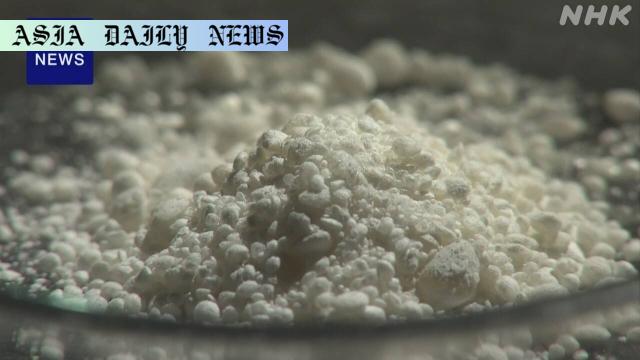PFAS – Critical steps to avoid harmful chemical leakage from improperly stored activated charcoal.
Government raising alarms over potential PFAS chemical leaks.
Improperly stored activated charcoal could release PFAS into the environment.
New measures include storing used charcoal indoors and disposing of it through high-temperature incineration.

Introduction to PFAS and the Current Concern
Japan’s Environment Ministry has issued an urgent advisory regarding the potential leakage of PFAS chemicals, primarily absorbed in activated charcoal used for water purification processes. PFAS, or per- and polyfluoroalkyl substances, are organic fluorine compounds known for their potential health and environmental risks. These compounds have gained global attention for their persistence in water and soil, earning them the troubling moniker of ‘forever chemicals.’ An incident in Okayama Prefecture in 2023 highlighted the severity of this issue, where highly concentrated traces of PFAS were detected in a water treatment plant. Experts have traced the origin of the contamination to activated charcoal left exposed in an upriver area.
The Ministry’s Precautionary Measures
To address this pressing issue, the Environment Ministry is enforcing strict guidelines on the proper handling and disposal of activated charcoal laden with PFAS. Local governments are mandated to secure charcoal indoors if retained for extended periods, ensuring controlled storage conditions. Furthermore, critical emphasis is placed on businesses to disclose PFAS content when collaborating with waste disposal firms. These firms are instructed to incinerate the used charcoal at elevated temperatures optimized according to government regulations, which degrade the persistent chemical compounds effectively.
Understanding the Risks of PFAS Chemicals
The dangers of PFAS extend far beyond water contamination. These substances are linked to adverse health effects such as hormonal disruptions, immune system damage, and certain types of cancer. Moreover, their environmental ramifications are no less severe, with prolonged exposure leading to groundwater contamination and subsequent ecological harm. The discovery of PFAS leakage in Okayama serves as a wake-up call for governments and industries alike to implement proactive preventive measures.
Implications for Waste Management and Policy
Japan’s recent directive also casts a spotlight on waste management practices. It underscores the need for transparency between businesses and disposal firms. Beyond the high-temperature incineration requirement, regulators might need to consider investing in advanced chemical degradation technologies as a long-term solution. The collaboration between multiple sectors, from local governments to industrial players, is pivotal to ensuring these harmful chemicals do not infiltrate ecosystems or human communities further.
Conclusion and a Call for Global Vigilance
Japan’s response serves as a critical case study for other nations grappling with PFAS contamination issues. While localized efforts are effective, PFAS pollution is a global problem requiring coordinated international action. The scientific community must continue researching innovative ways to mitigate PFAS risks, while governments must prioritize effective policies to protect public health and the environment from these persistent toxins.
Commentary
Addressing PFAS Contamination: A Personal Take
The issue of PFAS contamination is one that demands both immediate action and long-term solutions. As we’ve seen from the case in Okayama Prefecture, improper handling and storage of used activated charcoal can have dire consequences, not just for the affected locality but potentially on a much larger scale. Japan’s proactive response is commendable, shedding light on the importance of proper waste management and industry accountability, particularly when dealing with persistent and hazardous chemicals.
The Wider Implications of Inaction
What resonates most profoundly about this situation is the stark reminder of how interconnected our systems are. A single oversight, such as leaving contaminated charcoal outdoors, can lead to widespread contamination of critical resources like water. It’s troubling to think how many similar cases might exist globally, unnoticed or unreported. Governments worldwide need to consider Japan’s approach as a model for identifying potential PFAS contamination points and eliminating risks at the source.
A Call for Collective Responsibility
While it is easy to put the onus on authorities or industries, we all play a role in addressing this issue. As consumers, our demands and choices drive the market, and greater awareness about the environmental and health impacts of chemicals like PFAS can lead to more significant public advocacy and systemic change. Moreover, scientific advancements in PFAS degradation could pave the way for safer alternatives and mitigation methods, proving once again that collective effort is the key to resolving such pressing global challenges.


